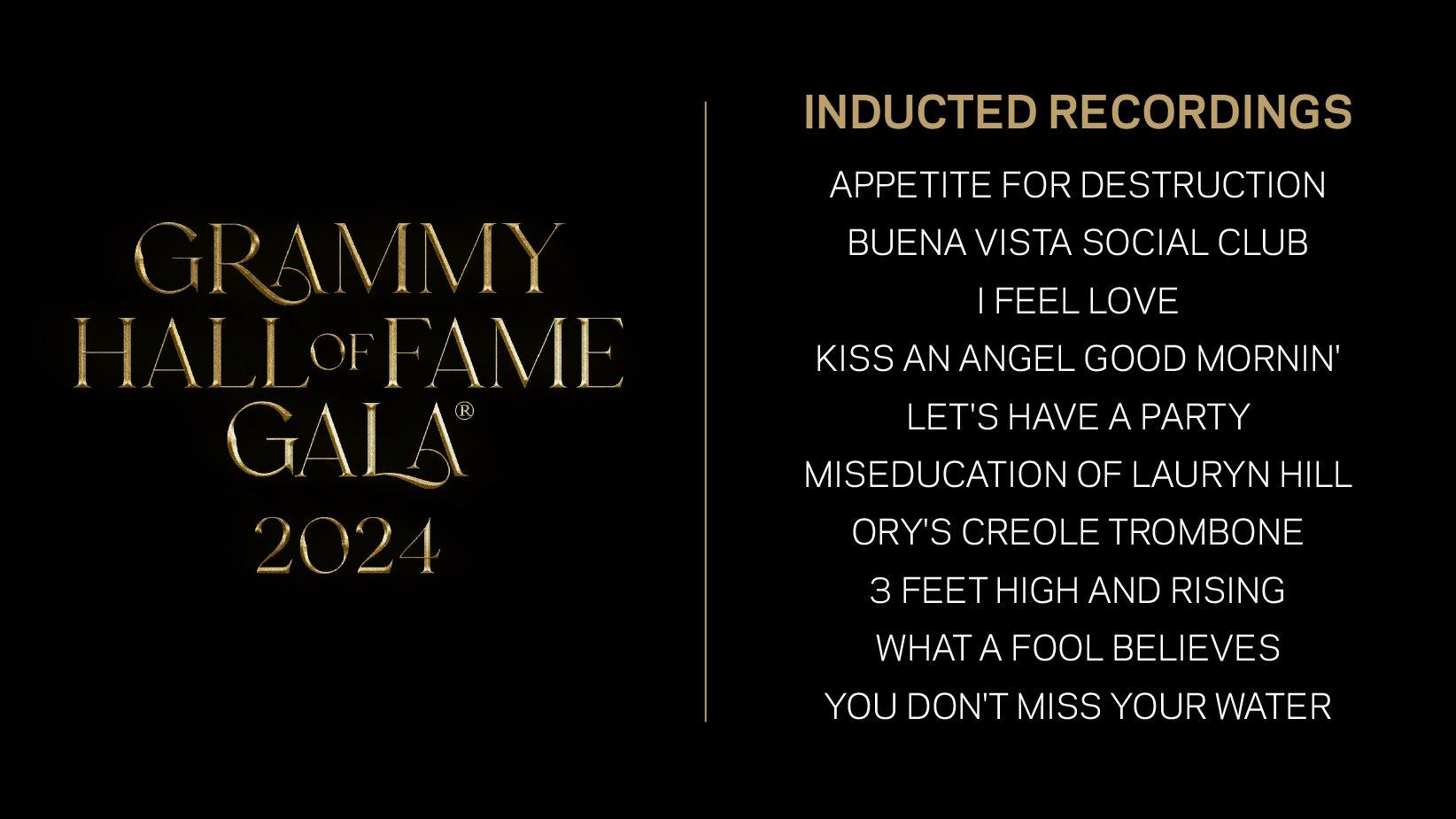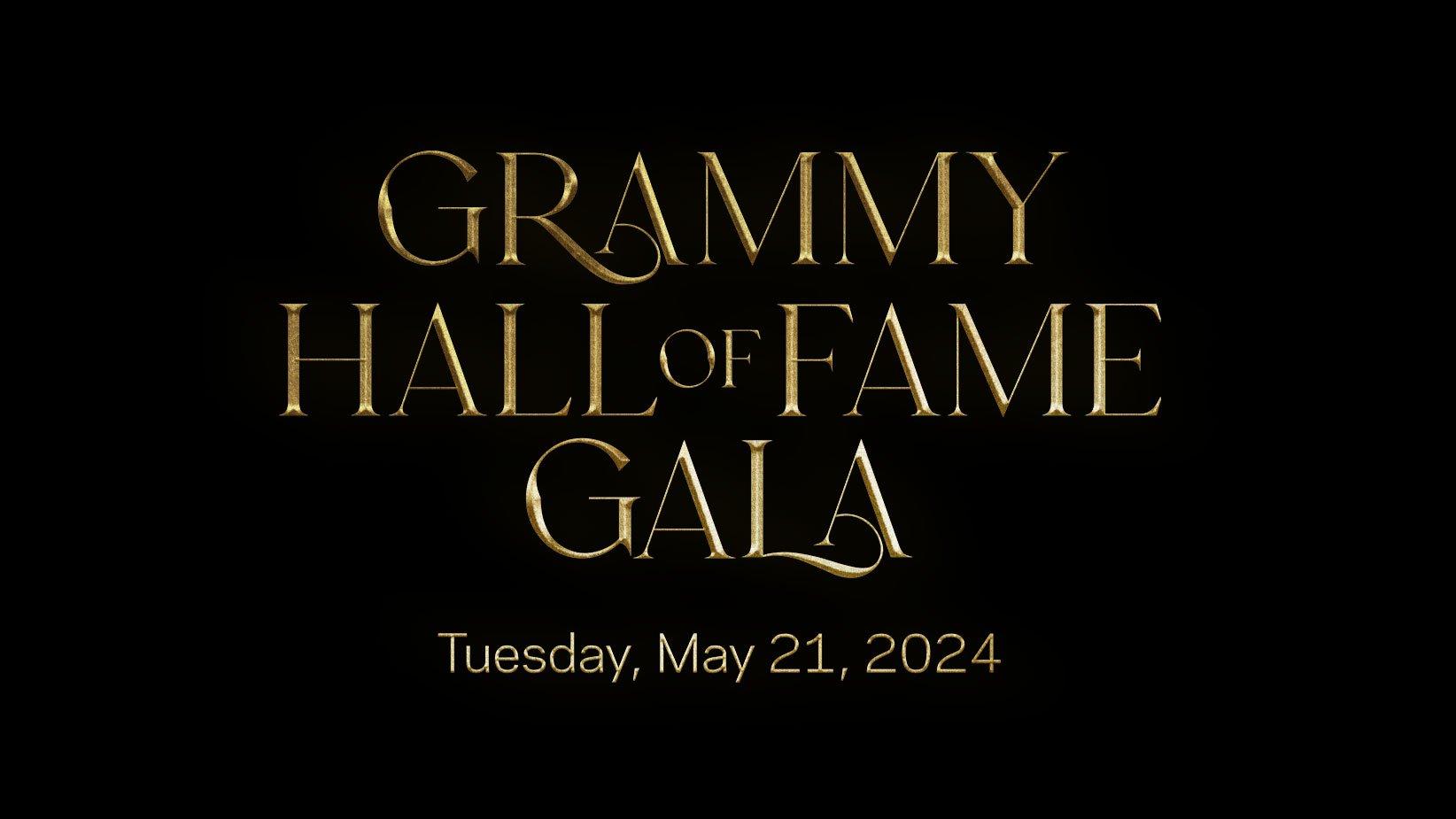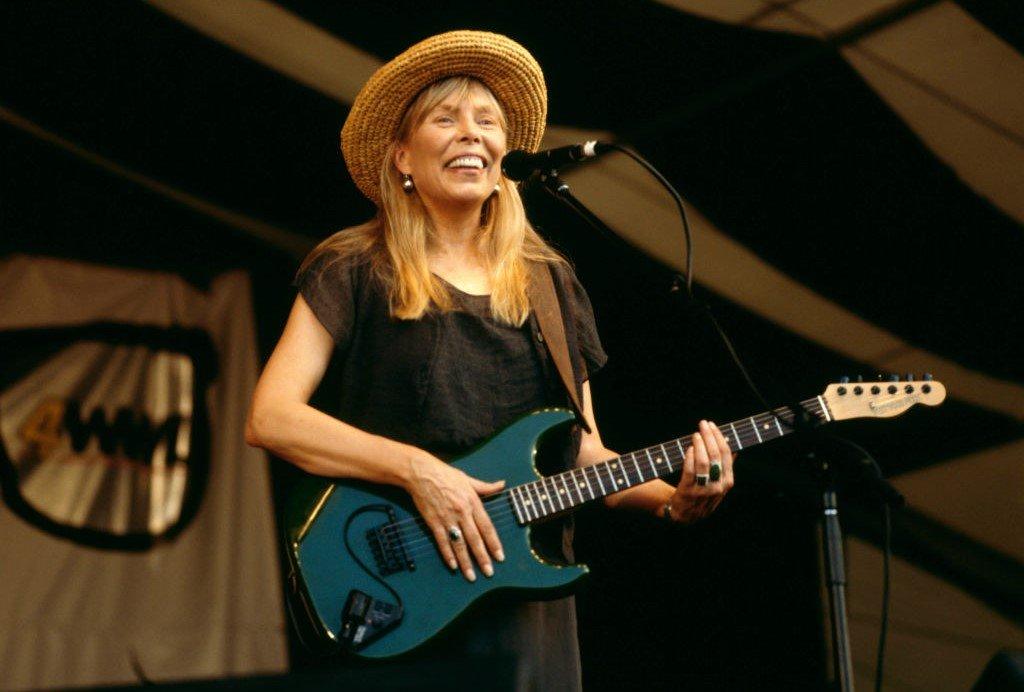Having rebounded from a 2015 aneurysm, the nine-time GRAMMY winner and 17-time nominee has made a thrilling and inspiring return to the stage. Many of us have seen the images of Mitchell, enthroned in a mockup of her living room, exuding a regal air, clutching a wolf’s-head cane.
Again, this adulation is apt. But adulation can have a flattening effect, especially for those new to this colossal artist. At the MusiCares Person Of The Year event honoring Mitchell ahead of the 2022 GRAMMYs, concert curators Jon Batiste — and Mitchell ambassador Brandi Carlile — illustrated the breadth of her Miles Davis-esque trajectory, of innovation after innovation.
At the three-hour, star-studded bash, the audience got "The Circle Game" and "Big Yellow Taxi" and the other crowd pleasers. But there were also cuts from Hejira and Don Juan’s Reckless Daughter and Night Ride Home, and other dark horses. There were selections that even eluded this Mitchell fan’s knowledge, like "Urge for Going." Batiste and Carlile did their homework.
But what of the general listening public — do they grasp Mitchell’s multitudes like they might her male peers, like Bob Dylan? Is her album-by-album evolution to be poured over with care and nuance, or is she Blue to you?
Of course, everyone’s entitled to commune with the greats at their own pace. However, if you’re out to plumb Mitchell’s depths beyond a superficial level, her 80th birthday — which falls on Nov. 8 — is the perfect time to get to know this still-underrated singer/songwriter legend better. Here are 10 deeper Mitchell cuts to start that journey, into this woman of heart and mind.
"The Gallery" (Clouds, 1969)
Mitchell blew everyone’s minds when David Crosby discovered her in a small club in South Florida. Her 1968 debut, Song to a Seagull, contains key songs from that initial flashpoint, like "Michael from Mountains" and "The Dawntreader."
Mitchell’s artistic vision truly coalesced on her second album, Clouds. Although the production is a little wan and bare-boned, Clouds contains a handful of all-time classics, including "Chelsea Morning," "The Fiddle and the Drum" and the epochal "Both Sides, Now."
That said, "The Gallery," which kicks off side two, belongs at the top of the heap. There remain rumblings that it’s about Leonard Cohen. But whatever the case, Mitchell’s excoriating burst of a pretentious cad’s bubble ("And now you're flying back this way/ Like some lost homing pigeon/ They've monitored your brain, you say/ And changed you with religion") remains incisive, with a gorgeous melody to boot.
(And, it must be said: "That Song About the Midway," also found on Clouds, is a kiss-off to Croz, whom she enjoyed a fleeting fling with and a must-hear.)
"Cold Blue Steel and Sweet Fire" (For the Roses, 1972)
If you think you’ve got a grasp of Mitchell’s early talents, a new archival release proves they were more prodigious than you could imagine.
Joni Mitchell Archives, Vol. 3: The Asylum Years (1972-1975) kicks off with a solo version of "Cold Blue Steel and Sweet Fire." And as great as the studio version is, from 1972’s For the Roses, this version, from a session with Crosby and Graham Nash, arguably eats its lunch.
While Neil Young’s "The Needle and the Damage Done" has proved to be the epochal junkie-warning song of the 1970s, Mitchell’s song about the same subject easily goes toe to toe with it.
Images like "Pawn shops crisscrossed and padlocked/ Corridors spit on prayers and pleas" and "Red water in the bathroom sink/ Fever and the scum brown bowl" are quietly harrowing. Via Mitchell’s acoustic guitar, they’re underpinned by downcast, harmonically teeming blues.
"Sweet Bird" (The Hissing of Summer Lawns, 1975)
The Hissing of Summer Lawns is an unquestionable masterstroke of Mitchell’s fusion era.
Highlights are genuinely everywhere within Lawns — from the swinging and swaying "In France They Kiss on Main Street," to the Dr. Dre-predicting "The Jungle Line," to the title track, a hallucinatory lament for a trophy wife.
But amid these manifold high points, don’t miss "Sweet Bird," the penultimate track on The Hissing of Summer Lawns, tucked between "Harry’s House/Centerpiece" and "Shadows and Light."
"Give me some time/ I feel like I'm losing mine/ Out here on this horizon line," Mitchell sings through her dusky soprano, as the ECM-like atmosphere seems to whirl heavenward. "With the earth spinning/ And the sky forever rushing/ No one knows/ They can never get that close/ Guesses at most."
"A Strange Boy" (Hejira, 1976)
Much like The Hissing of Summer Lawns, Hejira — retroactively, and rightly, canonized as one of Mitchell’s very best albums — is nearly flawless from front to back.
The highs are so high — "Amelia," "Hejira," "Refuge of the Roads" — that almost-as-good tracks might slip through the cracks. "A Strange Boy," about an airline steward with Peter Pan syndrome she briefly linked with.
"He was psychologically astute and severely adolescent at the same time," Mitchell said later. "There was something seductive and charming about his childlike qualities, but I never harbored any illusions about him being my man. He was just a big kid in the end."
As "A Strange Boil" smolders and begins to catch flame, Mitchell delivers the clincher line: "I gave him clothes and jewelry/ I gave him my warm body/ I gave him power over me."
"Otis and Marlena" (Don Juan’s Reckless Daughter, 1977)
One of Mitchell’s most challenging and thorny albums, Don Juan’s Reckless Daughter is one of Mitchell’s least accessible offerings from her most expressionist era. (Mitchell in blackface on the cover, as a character named Art Nouveau, doesn’t exactly grease the wheels — to put it mildly.)
But across the sprawling and head-scratching tracklisting — which includes a seven-minute percussion interlude, in "The Tenth World" — are certain tunes that belong in the Mitchell time capsule.
One is "Otis and Marlena," one of the funniest and most evocative moments on an album full of strange wonders. Mitchell paints a picture of a cheap vacation scene, rife with "rented girls" and "the grand parades of cellulite" against a "neon-mercury vapor-stained Miami sky."
And the kicker of a chorus juxtaposes this dowdy Floridan outing with the realities up north, e.g. the 1977 Hanafi Siege: "They’ve come for fun and sun," MItchell sings, "while Muslims stick up Washington."
"A Chair in the Sky" (Mingus, 1979)
While Don Juan’s Reckless Daughter is rather glowering and unwelcoming, Mingus is a cracked, cubist realm that’s fully inhabitable.
Initially conceived as a collaboration between Mitchell and four-time GRAMMY nominee Charles Mingus, it ended up being a eulogy: Mingus died before the album could be completed.
Despite its lopsided nature — it contains five spoken-word "raps," as well as a true oddity in the eerie, braying "The Wolf That Lives in Lindsey" — Mingus remains rewarding almost 45 years later. And the Mingus-composed "A Chair in the Sky," with lyrics by Mitchell, is arguably its apogee.
Like the rest of Hejira, "A Chair in the Sky" features Jaco Pastorius and Wayne Shorter from Weather Report, as well as the one and only Herbie Hancock; this ethereal, ascendant track demonstrates the magic of when this phenomenal ensemble truly gels.
"Moon at the Window" (Wild Things Run Fast, 1982)
In Mitchell’s trajectory, Wild Things Run Fast represents the conclusion of her fusion phase, in favor of a more rock-driven sound — and, with it, the sunset of her second epoch.
Following Wild Things Run Fast would be 1985’s critically panned Dog Eat Dog and 1988’s even more assailed Chalk Mark in a Rain Storm. But for every arguable misstep, like the guitar-squealing "You Dream Flat Tires," there’s a baby that shouldn’t be thrown out with the bathwater.
One is "Chinese Cafe/Unchained Melody," another is "Ladies’ Man," and perhaps best of all is the luminous "Moon at the Window," where bassist/husband Larry Klein and Shorter wrap Mitchell’s sumptuous lyric, and melody, in spun gold.
"Passion Play (When All the Slaves Are Free)" (Night Ride Home, 1991)
At the dawn of the grunge era, Mitchell found her way back to her atmospheric best, with the gorgeously written, performed and produced Night Ride Home.
While its follow-up, Turbulent Indigo, won the GRAMMY for Best Pop Album (and is certainly worth savoring), Night Ride Home might have more to offer those who were enraptured by the majestic Hejira, and thirsted for a continuation of its aural universe.
The equally excellent "Come in From the Cold" is the one that has ended up on Mitchell setlists in the 2020s, but "Passion Play (When All the Slaves Are Free)" is even more transportive.
Despite the early 1900s sonics, "Passion Play" feels ageless and eternal, tapped into some Jungian collective unconscious as a wizened Mitchell posits, "Who’re you going to get to do your dirty work/ When all the slaves are free?"
"No Apologies" (Taming the Tiger, 1998)
If Night Ride Home sounds less played than conjured Taming the Tiger is like the steam that twists and disperses from its broiling, potent stew.
As much ambience pervaded Night Ride Home, Hejira and the like, Taming the Tiger is the only album in Mitchell’s estimable catalog to feel ambient.
Much of this is owed to Mitchell’s employment of the Roland VG-8 virtual guitar system, which allowed her to change her byzantine guitar tunings at the push of a button; the ensuing sound is a suggestion of a guitar, which enhances Taming the Tiger’s diaphanous and ephemeral feel.
"No Apologies" is something of a centerpiece, where Mitchell sings of war and a dilapidated homeland, sailing forth on a cloud of Greg Liestz’s sonorous lap steel.
"Bad Dreams" (Shine, 2007)
Mitchell has always cast a jaundiced eye at the music industry machine, so it’s no wonder she hasn’t released a new album in 16 years. (Although, as she revealed to Rolling Stone, she’s eyeing a small-ensemble album of standards with her old mates in the jazz scene.)
But if Shine ends up being her swan song, it’d be a fine farewell. "Bad Dreams" — written around a quote from Mitchell’s 3-year-old grandson: "Bad dreams are good / In the great plan" — is impossibly moving.
Therein, Mitchell considers an Edenic tableau as opposed to our modern world, where "these lesions once were lakes." Movingly, the song’s final lines accept reality for what it is ("Who will come to save the day? / Mighty Mouse? Superman?") rather than what she wishes it could be.
With that, Mitchell’s studio discography — as we know it today — reaches its conclusion. But although the artist is only fully getting her flowers today, we’ve only scratched the surface of the gifts she’s bestowed upon us.
Living Legends: Judy Collins On Cats, Joni Mitchell & Spellbound, Her First Album Of All-Original Material




